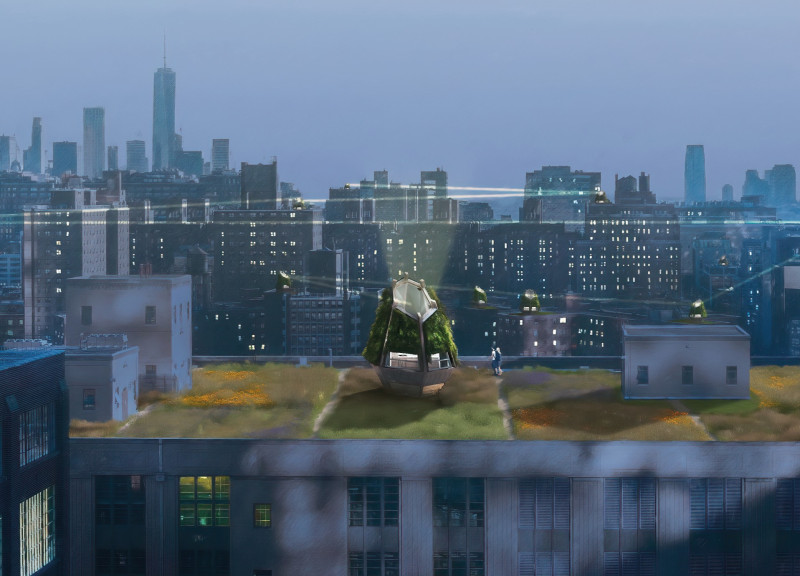5 key facts about this project
Modularity is at the forefront of the design, allowing these units to be configured in various layouts based on community needs. This approach not only facilitates a diverse living environment but also promotes efficient use of space. The project supports shared communal areas, fostering social interactions and establishing a sense of belonging among residents.
The architectural design of "The Vertex" incorporates several unique aspects that differentiate it from typical urban housing solutions. The use of sustainable materials stands out, including structural steel and timber, which provide durability while enabling rapid construction. Green roof systems are integrated within the design to enhance biodiversity, improve building insulation, and offer inhabitants access to urban gardening opportunities. This distinctive feature sets the project apart, creating a dual-purpose landscape that benefits both residents and the environment.
Significantly, the project incorporates advanced technology aimed at promoting sustainable lifestyles. Solar panels are integrated into the design, allowing each pod to generate renewable energy. Additionally, a connected application provides residents with real-time data on energy and water consumption, encouraging responsible resource management. This type of technological integration not only enhances efficiency but also instills a sense of environmental stewardship in the residents.
The interior spaces of "The Vertex" emphasize adaptability, featuring movable walls and multifunctional furniture designed to optimize living areas. This level of flexibility enables different residential configurations, accommodating various lifestyles without compromising on comfort or functionality. The architectural design thus supports both individual needs and collective community living.
For readers interested in the detailed aspects of this architectural project, exploring the architectural plans, architectural sections, and architectural designs that translate these ideas into reality will provide greater insight into the innovative concepts presented in "The Vertex." This exploration will reveal how the project harnesses contemporary architectural principles to create a viable model for future urban housing developments.


























